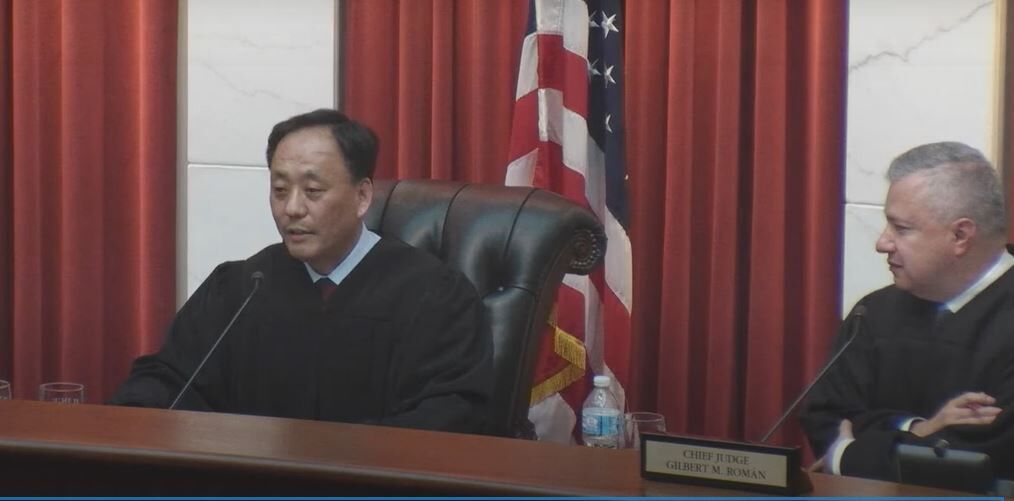El Paso County child sex assault convictions reversed after appeals court finds errors

A man convicted of multiple child sex offenses will receive a new trial after Colorado’s second-highest court determined his defense lawyers likely contributed to the guilty verdict by failing to object to damaging testimony about the defendant’s other, uncharged misconduct.
An El Paso County jury in 2013 found Daniel C. Oliver guilty of felony sex assault on a child. He received a sentence of eight years to life in prison.
Although the Court of Appeals originally upheld his convictions, Oliver continued to seek postconviction relief. He alleged his lawyers at trial were constitutionally ineffective – meaning they not only acted unreasonably, but their errors likely affected the outcome.
Specifically, Oliver pointed to two flaws. First, his trial lawyers did not ask for a jury instruction explaining that Oliver could not be guilty of sexual assault if he touched the children for medical purposes. They also did not object to testimony about Oliver’s alleged psychological abuse of his ex-wife and unrelated physical abuse of his children.
On June 22, a three-judge panel for the Court of Appeals agreed Oliver’s second claim about the inflammatory testimony warranted a new trial.
“As Oliver notes,” wrote Judge David H. Yun, “the evidence of his uncharged bad acts ‘allowed jurors to receive a remarkably unflattering image of him,'” suggesting Oliver was a generally abusive person.
Under the rules of evidence, it is possible for jurors to hear about a defendant’s prior misconduct, even if it did not result in criminal charges. However, prosecutors may not use that evidence simply to prove the defendant has bad character. Doing so would run the risk that jurors would convict someone for being unlikeable, and would force the defendant to counter allegations that are not officially part of the case.
Case: People v. Oliver
Decided: June 22, 2023
Jurisdiction: El Paso County
Ruling: 3-0
Judges: David H. Yun (author)
Anthony J. Navarro
Jaclyn Casey Brown
Background: Denver jury should not have heard about defendant’s prior assaults of wife, appeals court rules
Oliver did not dispute that he touched his children’s genitals. He argued, instead, that he did so for medical reasons. The evidence indicated his children had skin irritations or abnormalities, and Oliver applied lotion or visually examined the skin conditions himself. At the same time, prosecutors presented other evidence suggesting Oliver acted for purposes of sexual gratification.
The jury’s verdict was mixed: It acquitted Oliver of all charges related to one child, convicted him of only one charge for the second child, and convicted him of all charges for the third child.
During the defense’s opening statement, Oliver’s attorney misrepresented the circumstances of Oliver’s supervised visitations with his children. As a result, the government sought to introduce evidence of a protection order, also known as a restraining order, between Oliver and his ex-wife. Oliver’s attorneys objected, but District Court Judge David Prince gave the green light to the prosecution.
Jurors then heard multiple pieces of testimony about Oliver hitting his children, forcing them to eat hot sauce or hand soap, and psychologically abusing his ex-wife in front of the children – using the Bible’s teachings about “submission” as justification.
The defense did not object to any of the testimony. Although Prince instructed the jury that Oliver was not facing charges related to those “interactions,” he never told jurors what they should do with the damaging statements.
Following his conviction, Oliver asserted his lawyers at trial had failed to act reasonably and they should have objected to the allegations of uncharged abuse. He argued the testimony went far beyond the purpose of describing the protection order, and instead invited jurors to convict Oliver for being a bad person.
“The testimony at issue here painted Mr. Oliver as a religiously crazed perpetrator of multiple acts of uncharged physical abuse against his children, and at least one act of uncharged emotional abuse against his wife,” wrote public defender Mark Evans to the Court of Appeals. “It encouraged jurors to punish Mr. Oliver for being a bad father and bad husband; placed his character at the forefront of jurors’ consideration; and required him to not only defend against the charged offenses, but also explain his parenting.”
Reviewing Oliver’s petition for postconviction relief, District Court Judge Jill Brady agreed the defense attorneys’ lack of objection was constitutionally unreasonable. But, in her view, the error did not harm Oliver because of Prince’s instruction about the evidence and the fact that jurors returned a split verdict.
The split verdict, echoed Assistant Solicitor General Brittany Limes Zehner to the Court of Appeals, is “strong evidence that the jury based its verdict on the law and evidence rather than on the belief that Oliver was a bad person.”
The appellate panel was unconvinced. The testimony suggested Oliver was an “abusive person,” and Prince never told jurors how they should apply the evidence. Moreover, wrote Yun, a split verdict could also imply the jury would have acquitted Oliver of all charges, if not for the provocative testimony.
“Under these circumstances,” he wrote, “we conclude that Oliver has demonstrated a reasonable probability that, but for counsel’s unprofessional errors in failing to object to the challenged evidence, the result of the proceeding would have been different.”
The panel did not address Oliver’s other claim on the lack of a jury instruction about the medical purposes of his touching.
The case is People v. Oliver.














